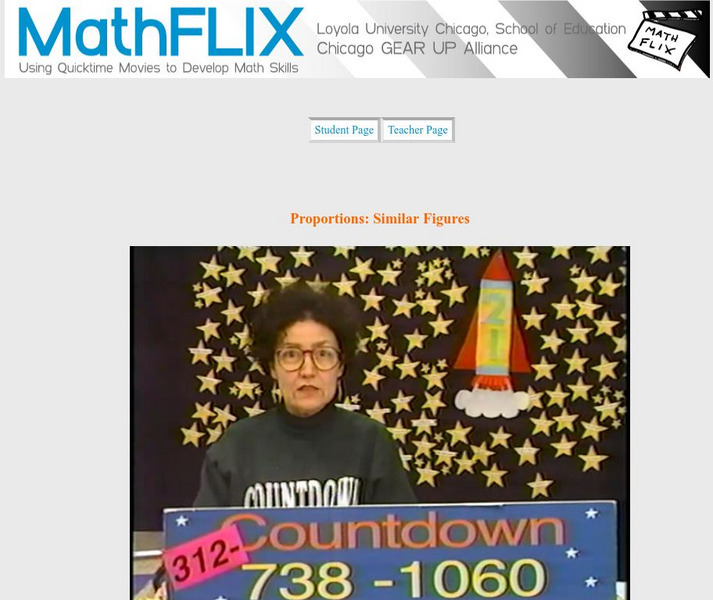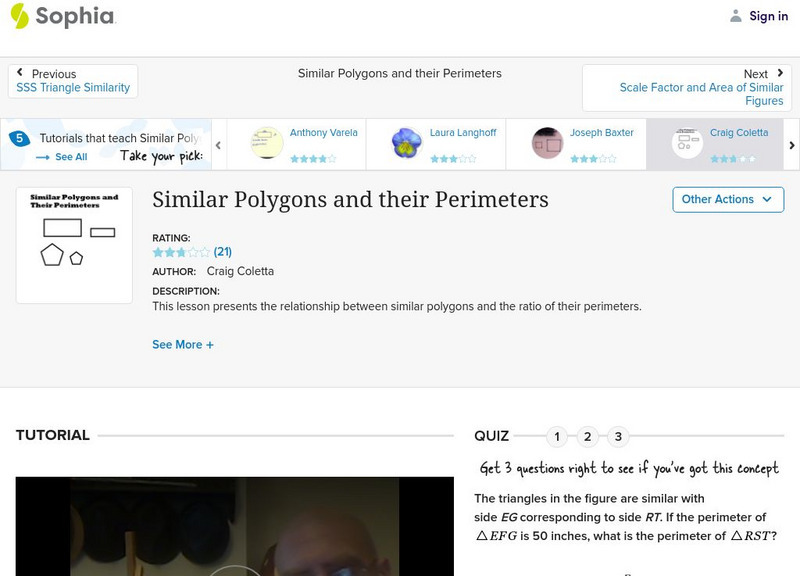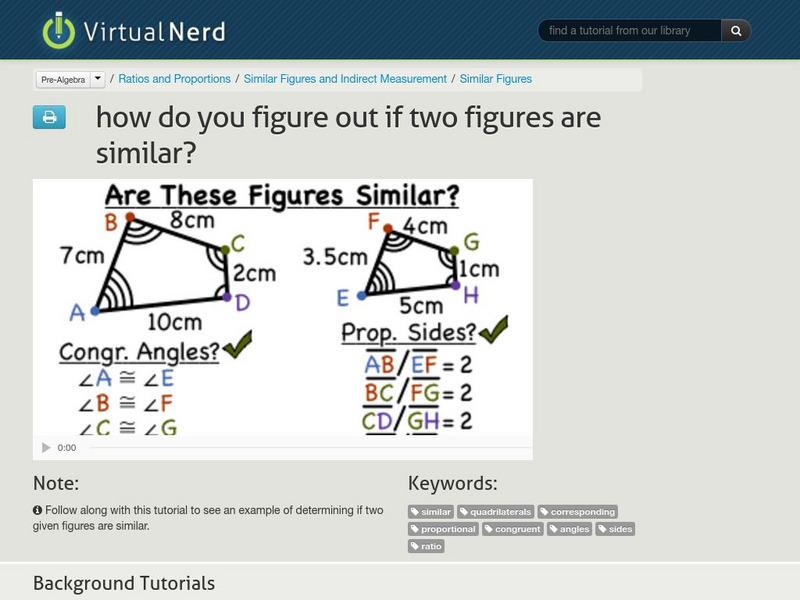Tarver Academy
7-2 Ratios in Similar Polygons - GEOMETRY
In This Episode, Tyler Teaches Us About Ratios in Similar Polygons - Geometry
Brian McLogan
Determine the missing parts of a polygon and find the perimeter
Learn how to solve with similar polygons. Two polygons are said to be similar if the corresponding angles are congruent (equal). When two polygons are similar the corresponding sides are proportional. Knowledge of the length of the sides...
Brian McLogan
Labeling corresponding parts and proportions of sides of similar figures
Learn how to solve with similar polygons. Two polygons are said to be similar if the corresponding angles are congruent (equal). When two polygons are similar the corresponding sides are proportional. Knowledge of the length of the sides...
Brian McLogan
How to solve for y using similarity and proportions
Learn how to solve with similar polygons. Two polygons are said to be similar if the corresponding angles are congruent (equal). When two polygons are similar the corresponding sides are proportional. Knowledge of the length of the sides...
Brian McLogan
Solving for x for two similar polygons
Learn how to solve with similar polygons. Two polygons are said to be similar if the corresponding angles are congruent (equal). When two polygons are similar the corresponding sides are proportional. Knowledge of the length of the sides...
Brian McLogan
Finding the missing value for two similar pentagons
Learn how to solve with similar polygons. Two polygons are said to be similar if the corresponding angles are congruent (equal). When two polygons are similar the corresponding sides are proportional. Knowledge of the length of the sides...
Brian McLogan
Given similar figures determine your missing values
Learn how to solve with similar polygons. Two polygons are said to be similar if the corresponding angles are congruent (equal). When two polygons are similar the corresponding sides are proportional. Knowledge of the length of the sides...
Curated Video
Determining Similarity of Figures Using Transformations and Dilations
In this video, the teacher explains how to determine if two figures are similar by using rigid transformations and dilations. They discuss the different types of rigid transformations, such as translation, reflection, and rotation, as...
Curated Video
Finding Missing Measures in Similar Figures
In this lesson, students will learn how to find missing measures in similar figures by solving algebraic equations. They will review rigid transformations and understand how to determine if polygons are similar.
Loyola University Chicago
Math Flix: Proportion Similar Figures
This QuickTime movie applies the concept of proportion to similar geometric figures. As you watch and listen to the teacher and students interact it helps clarify the thinking behind applying this concept. Allow loading time.
Sophia Learning
Sophia: Similar Polygons and Their Perimeters
Multiply the perimeter of a smaller polygon by the scale factor to determine if polygons are similar in this video tutorial. [2:16] Assess learning with a quiz.
Sophia Learning
Sophia: Similar Polygons and Their Perimeters
Explore the relationship between similar polygons and the ratio of their perimeters. Assess learning with a quiz.
Virtual Nerd
Virtual Nerd: How Do You Figure Out if Two Figures Are Similar?
Follow along with this tutorial to see an example of how to determine if two given figures are similar. [7:49]
Imagine Learning Classroom
Learn Zillion: Lesson Video: Identify Scale Factors Using Rectangle Side Lengths
In this lesson, you will learn to identify scale factors by exploring the side lengths of rectangles. [4:52]
Khan Academy
Khan Academy: Similar Shapes & Transformations
This video lesson demonstrates how to determine whether given polygons are similar by trying to map one onto the other. The instructor uses angle-preserving transformations in this process.
Sophia Learning
Sophia: Similar Polygons and Their Perimeters: Lesson 2
This lesson presents the relationship between similar polygons and the ratio of their perimeters. It is 2 of 5 in the series titled "Similar Polygons and their Perimeters."







